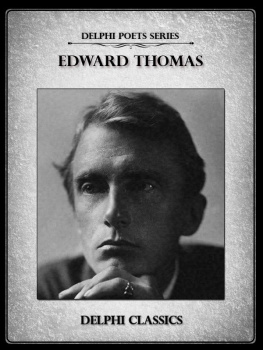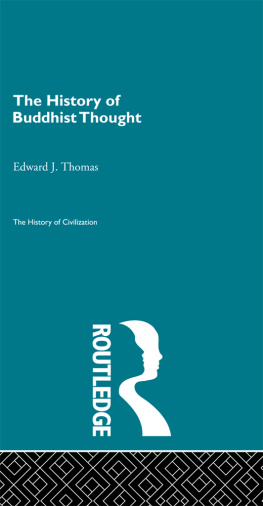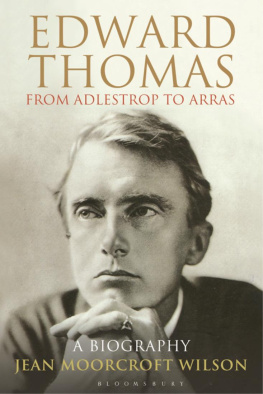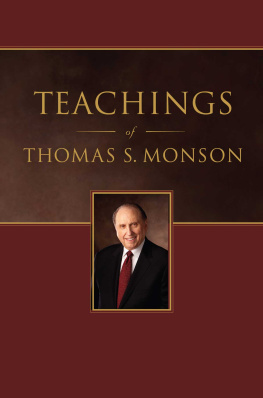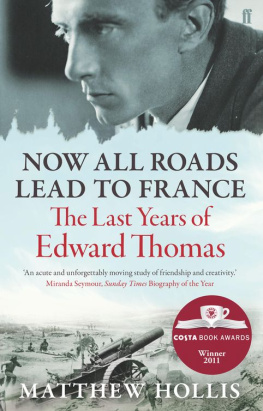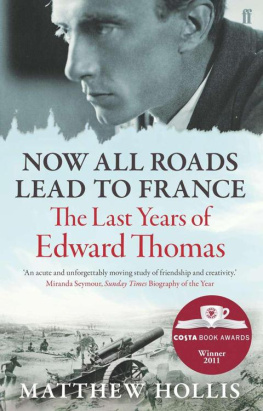DEDICATION
TO HARRY HOOTON
When I sat down at the Dolau Cothi Arms this evening I remembered my dedication to you. You said I could dedicate this book to you if I would make a real dedication, not one of my shadowy salutes befitting shadows rather than men and women. It seems odd you should ask thus for a sovereigns worth ofshall I sayEnglish prose from a writer by trade. But though I turn out a large, if insufficient, number of sovereigns worths, and am become a writing animal, and could write something or other about a broomstick, I do not write with ease: so let that difficulty give the dedication its value.
It is right that I should remember you upon a walk, for I have walked more miles with you than with anyone else except myself. While I walked you very often danced, on the roads of Kent, Sussex, Surrey, and Hampshire. This evening when I went out on the Sarn Helen everybody was in chapel, I think, unless it was the Lord, for he also seemed to me to be walking in the cool. I was very much alone, and glad to be. You were a ghost, and not a man of fourteen stone, and I thought that perhaps after all that shadowy salute would be fittest. But I have put my pen to paper: I have set out and I will come to an end; for, as I said, I am a writing animal. In the days of those old walks I could have written a dedication in Norfolk jacket style, all about the open road, and the search for something over the hills and far away: I should have reminded you at some length how Borrow stayed at this inn, and that Dolau Cothi is the house where he could have lived with satisfaction if backed by a couple of thousands a year. To-day I know there is nothing beyond the farthest of far ridges except a signpost to unknown places. The end is in the meansin the sight of that beautiful long straight line of the Downs in which a curve is latentin the houses we shall never enter, with their dark secret windows and quiet hearth smoke, or their ruins friendly only to elders and nettlesin the people passing whom we shall never know though we may love them. To-day I know that I walk because it is necessary to do so in order both to live and to make a living. Once those walks might have made a book; now they make a smile or a sigh, and I am glad they are in ghostland and not fettered in useless print. This book for you was to have been a country book, but I see that it has turned out to be another of those books made out of books founded on other books. Being but half mine it can only be half yours, and I owe you an apology as well as a dedication. It is, however, in some ways a fitting book for me to write. For it is about a road which begins many miles before I could come on its traces and ends miles beyond where I had to stop. I could find no excuse for supposing it to go to Wales and following it there into the Ceidrych Valley, along the Towy to Caermarthen, and so to St. Davids which is now as holy as Rome, though once only a third as holy. Apparently no special medival use revived it throughout its course, or gave it a new entity like that of the Pilgrims Way from Winchester to Canterbury that you and I walked on many a timeby the Cock at Detling, the Black Horse at Thurnham, the Kings Head (once, I believe, the Pilgrims Rest) at Hollingbourne, above Harrietsham, past Deodara Villas, above Lenham and Robert Philpots Woodmans Arms, and so on to Eastwell; always among beech and yew and Canterbury bells, and always over the silver of whitebeam leaves. I could not find a beginning or an end of the Icknield Way. It is thus a symbol of mortal things with their beginnings and ends always in immortal darkness. I wish the book had a little more of the mystery of the road about it. You at least will make allowancesand additions; and God send me many other readers like you. And as this is the bottom of the sheet, and ale is better than ink, though it is no substitute, I label this Dedication, and wish you with me inside the Dolau Cothi Arms at Pumpsaint, in Caermarthenshire.
EDWARD THOMAS.
NOTE
I have to acknowledge the very great kindness of Mr. Hilaire Belloc, Mr. Harold T. E. Peake, and Mr. R. Hippisley Cox while I was writing this book, though I do so with some hesitation, because I may seem to make them responsible for some of my possible mistakes and certain shortcomings. A man could hardly have three better guides than Mr. Belloc for his grasp and sympathy with roads, Mr. Peake for his caution and curiosity, and documents, documents! and Mr. Cox for his ardour and familiarity with trodden turf; and I must add my testimony to that of my betters to the merits of Mr. Bellocs Old Road, Mr. Peakes chapter on prehistoric roads in Memorials of Old Leicestershire, and Mr. Coxs Avebury. To Mr. Peake I am indebted not only for suggestions that were invaluable to me, notably in the matter of the Ridgeway and the Bishop of Cloynes pernicious theory, but for the use of his copies of the greater part of the materials of my second chapter. I have also had great kindness from the Rev. E. H. Goddard and Mr. W. Gough.
EDWARD THOMAS.
Llaugharne,
Caermarthenshire.


